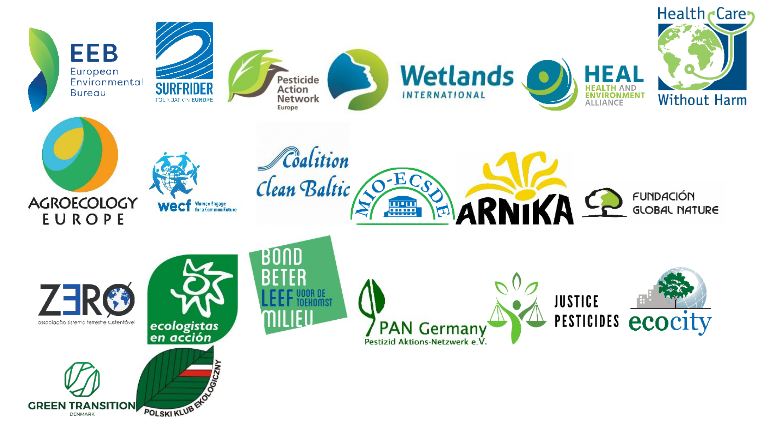Joint Statement on the revision of lists of surface and groundwater pollutants

19 October 2022 - As a joint alliance of EU health and environmental civil society organisations we hereby share our main policy recommendations on the update of the lists of surface and groundwater pollutants under the Water Framework Directive (2000/60/EC – WFD), the Environmental Quality Standards Directive (2013/39/EU – EQSD) and the Groundwater Directive (2006/118/EC – GWD).
Despite some improvements, water pollution remains a key environmental challenge across the EU and globally. Twenty years after the adoption of the Water Framework Directive, less than 40% of Europe’s rivers, lakes, coastal and transitional waters are in good chemical status. While the number for groundwater bodies in good chemical status is higher (74%), there are some large regional differences and it is also an effect of the fact that fewer pollutants are monitored in groundwater.
Yet, this does not reveal the full scale of EU water pollution as chemical status is only assessed against a small fraction of the substances present in the environment and does not consider mixture effects meaning that the full picture of chemical pollution in aquatic environments is underestimated and under-reported. It must also be acknowledged that fresh water and ocean pollution are one: and
the protection of Europe’s blue spaces depends on decisions adopted upstream.
The ongoing revision of lists of pollutants presents an opportunity to better tackle the chemical water pollution as identified in the fitness check evaluation of the water legislation, in particular related to mixture effects, uptake of scientific advances and transparency. We would like to set out key policy recommendations for these important legislative revisions:
- Expand the list of water pollutants to reflect the real scale of pollution
- Improve monitoring practices
- EU water legislation must respond faster to scientific knowledge
- Strengthen the responsibility of manufacturers, importers and users
- Use the most cost-efficient measures to address water pollution at source
Read the full statement here.
Co-signing organizations:


